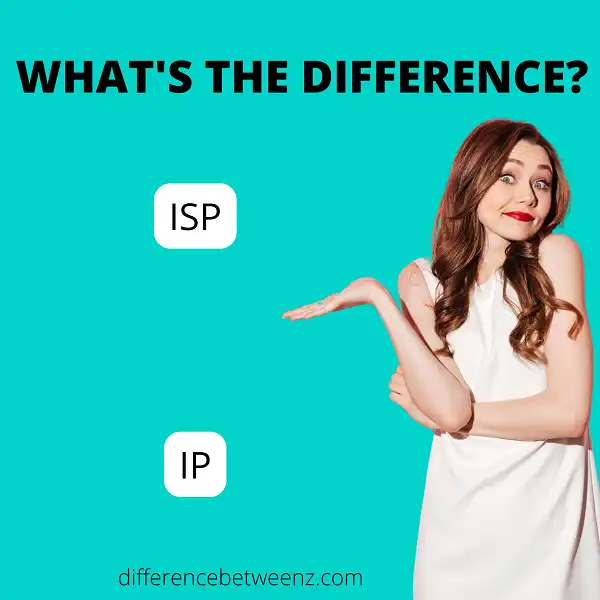In the early days of the internet, there was one main way to connect to the web. You would go through your internet service provider (ISP), which provided you with a modem that connected to your telephone line. These days, there are many more ways to connect to the internet, including through your own IP address. But what’s the difference between an ISP and an IP? Let’s take a closer look.
What is ISP?
An Internet Service Provider (ISP) is a company that provides Internet access to users. ISPs are responsible for the network infrastructure that enables users to connect to the Internet. They also provide other services, such as email, Web hosting, and online gaming. There are many different types of ISPs, including dial-up, DSL, cable, fiber-optic, and satellite. Each type of ISP has its own advantages and disadvantages. Dial-up is the oldest and most basic type of Internet service. It uses a regular telephone line to connect to the Internet. However, it is slow and subject to interruptions if someone else in the house picks up the phone. DSL uses a separate line for data transmission, which is faster than dial-up but still slower than other types of Internet service.
Cable Internet utilizes the same infrastructure as cable TV, providing high speeds and consistent service. However, it can be expensive and is not always available in rural areas. Fiber-optic Internet is the fastest type of broadband service available today. It uses a network of fibers to transmit data at high speeds. However, it is also very expensive and not widely available. Satellite Internet is another option for rural areas where other types of broadband service are not available. It uses a satellite dish to receive data from a satellite in orbit. Satellite Internet can be slower than other types of broadband service and is subject to weather conditions.
What is IP?
IP, or Internet Protocol, is the main communications protocol used on the internet. It defines how data is sent and received over the network. IP addresses are used to identify devices on the network, and each device has a unique IP address. IP addresses are assigned by ISPs, or Internet Service Providers. When you connect to the internet, your ISP assigns you an IP address. IP addresses can be static or dynamic. A static IP address is one that doesn’t change, while a dynamic IP address can change over time.
IP addresses are essential for communication on the internet, and they’re used in a variety of different applications. For example, when you visit a website, your computer sends a request to the website’s server using its IP address. The server then responds with the requested content, which is then displayed on your computer. IP addresses are also used for email communication, file sharing, and more.
Difference between ISP and IP
An ISP, or Internet Service Provider, is responsible for providing access to the internet. This can be done in a number of ways, including through coaxial cables, digital subscriber lines, or wireless connections. An IP, or Internet Protocol, address is a unique number assigned to each device that connects to the internet. In order for devices to communicate with each other, they must each have an IP address. An ISP will assign a device an IP address when it connects to the internet.
An ISP provides ongoing access to the internet, while an IP address allows devices to communicate with each other. Every device that connects to the internet must have its own unique IP address in order for communication to take place. When a device connects to the internet, its ISP will assign it an IP address. This address is used to allow communications between devices on the network. Without an ISP and an IP address, web surfing, emailing, and other activities that use the internet would not be possible. As you can see, both ISPs and IP addresses are essential for using the internet.
Conclusion
In conclusion, the difference between an ISP and an IP is that an ISP provides a customer with an IP address and is responsible for managing traffic on their network. An IP address is a unique identifier assigned to each device connected to the internet. Understanding these differences can help you troubleshoot connectivity issues and understand your website’s analytics data.


